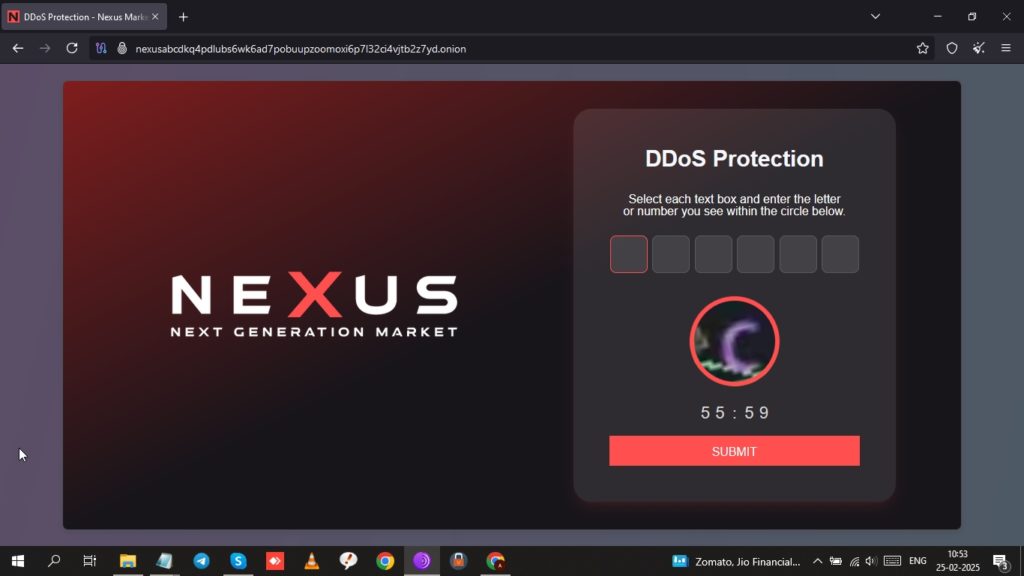Table of Contents
ToggleNEXUS Market – TOR Scam Report (196)
Onion Link : http://nexusabcdkq4pdlubs6wk6ad7pobuupzoomoxi6p7l32ci4vjtb2z7yd.onion
Scam Report Date : 2025-02-23
Client Scam Report Breakdown
Original Scam Report :
The client describes an ongoing scam issue with the NEXUS marketplace, in which they were defrauded twice. They explain that while the site’s administrators initially appear supportive, they ultimately side with the vendor despite clear evidence of fraudulent activity. The user states they placed a large order worth $2,000, and after the escrow payment was completed, the vendor changed their approach, attempting to coerce the buyer into a dead-drop scam—a method where the seller demands full payment before providing a package at an unsecured location. The client alerted the marketplace admins but was told to “wait for a dispute resolution.” However, the dispute process was biased, favoring the seller due to their seniority and feedback history, despite evidence of fraud. The seller, BULKHOUSE, ultimately sent 1 gram instead of the agreed-upon 100 grams, and when the client provided proof of fraud to admin Alexia, their concerns were dismissed. Furthermore, the client was blocked from leaving negative feedback, allegedly to prevent “retaliation,” leading them to suspect collusion between the moderators and the vendor.
Terminology and Key Definitions
- “Escrow Payment” – A system designed to protect buyers, where funds are held by a third party until the seller delivers the agreed-upon product. However, in fraudulent marketplaces, escrow can be manipulated to ensure that the vendor still receives the funds even if the buyer never gets what they paid for.
- “Dead Drop Scam” – A scam tactic where the seller demands full payment upfront but then refuses to deliver the goods, often claiming that the buyer must retrieve the product from an unsecured location. This is a high-risk scam because the buyer has no recourse once the payment is made.
- “Feedback Manipulation & Moderation Bias” – Marketplaces rely on vendor ratings and reviews to establish trust. In this case, the client alleges that the moderators intentionally blocked them from leaving negative feedback, thus protecting the scam vendor. If true, this indicates that the site is actively involved in enabling fraud, ensuring that future buyers remain unaware of previous scams.
Analysis and Scam Indicators
This case presents multiple strong indicators of a coordinated scam. First, the favoritism toward the vendor, despite overwhelming proof of fraud, suggests that the moderation team is complicit in protecting certain sellers. The refusal to acknowledge coercion attempts, even when the seller tried to push the buyer into a dead-drop scam, shows that the marketplace does not enforce its own policies. Second, the manipulation of the dispute resolution system—where vendors with higher feedback are automatically favored—creates an environment where senior scammers are shielded from accountability. Third, the blocking of negative feedback is a clear attempt to conceal fraudulent activity, allowing vendors to continue exploiting buyers without consequence. These tactics, combined with the deliberate misdirection and empty apologies from moderators, strongly indicate that NEXUS is not a neutral marketplace but rather a platform structured to facilitate long-term vendor scams.







